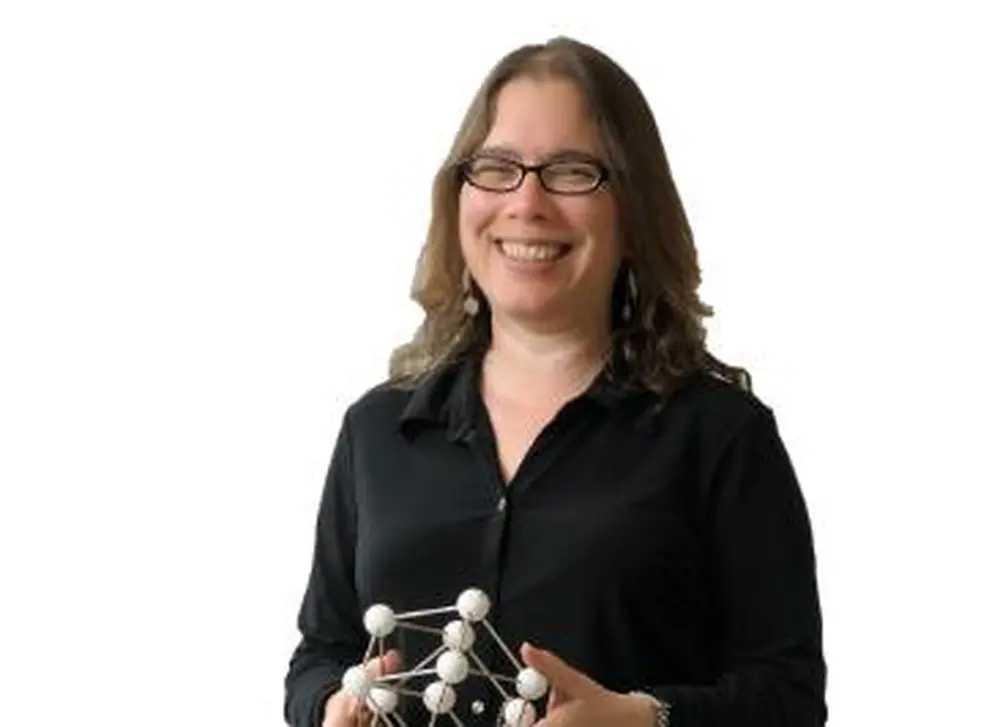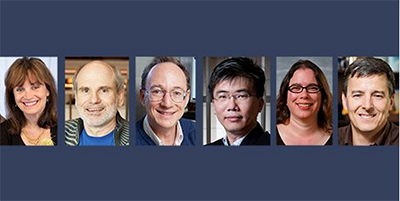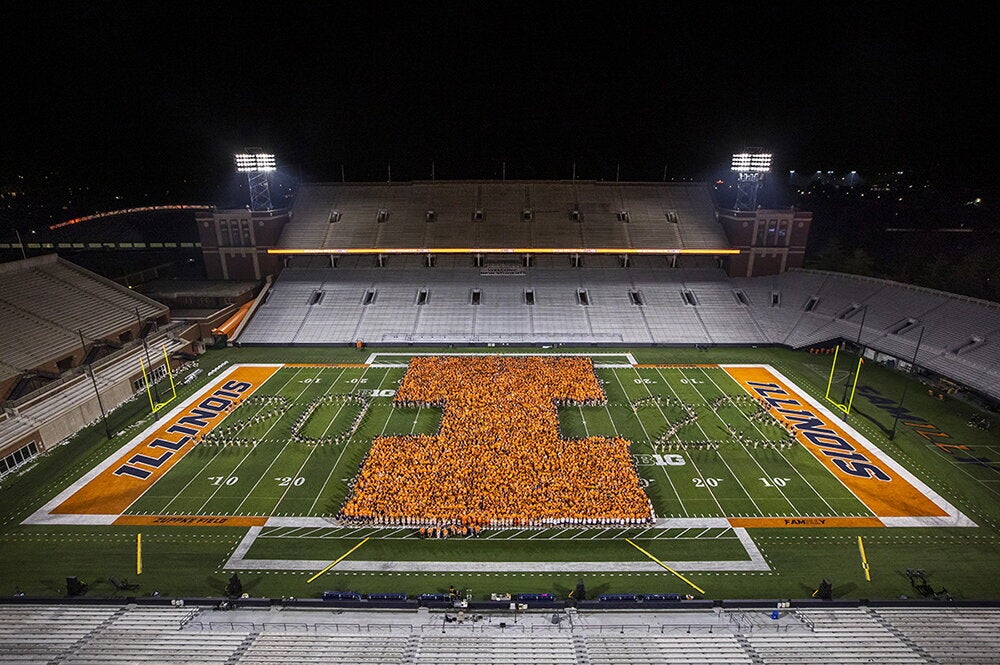

Six professors in or affiliated with the College of LAS have been elected to the National Academy of Sciences, one of the highest honors a scientist can receive.
Renée Baillargeon, professor of psychology; Gary Dell, professor of psychology; Steve Granick, professor emeritus of materials science and engineering (and affiliated with the departments of chemistry and chemical and biomolecular engineering); Taekjip Ha, professor of physics and Howard Hughes Medical Institute investigator; Catherine Murphy, professor of chemistry; and John Rogers, professor of materials science and engineering (and affiliated with the Department of Chemistry) were among 84 new members and 21 foreign associates announced by the Academy.
“National Academy memberships are among the highest academic honors our nation bestows,” says Phyllis M. Wise, the chancellor of the Urbana-Champaign campus. “These faculty members are recognized today as leaders in biophysics, chemistry, engineering, molecular biology and psychology. This is a great day for these scholars and for our campus.”
Baillargeon is the director of the U of I Infant Cognition Laboratory, where she studies infants’ physical, psychological and moral reasoning. Her work has challenged previous theories of infant development by demonstrating that even very young infants are able to differentiate events that are physically possible from those that appear to be physically impossible, and that an infant’s ability to reason about how others will behave is more sophisticated than previously thought.
Baillargeon is an Alumni Distinguished Professor as well as a Center for Advanced Study Professor. She has received the Fyssen International Research Prize and a Guggenheim Fellowship, and she is a fellow of the American Academy of Arts and Sciences, the Cognitive Science Society and the Association for Psychological Science.
Dell studies how people produce and understand sentences. He developed the first computational model of language production and used it to simulate properties of speech errors, or “slips of the tongue.” He later used related models to understand patterns of pathological speech production resulting from brain damage. His recent work focuses on how linguistic abilities change with experience and how such changes can be captured in neural networks.
Dell is a professor in the Beckman Institute for Advanced Science and Technology and a recipient of the American Psychological Association Early Career Award. He is a fellow of the American Association for the Advancement of Science, the Society of Experimental Psychologists, the Cognitive Science Society, the Association for Psychological Science and the Psychonomic Society.
Granick is an expert in the chemistry and physics of colloids and polymers. His work focuses on soft materials, working across disciplines to explore imaging, assembly, behavior and interactions of molecules in living cells and specially designed colloidal particles. His work has broad applications in medicine, biology, chemistry and manufacturing.
Granick is a fellow of the American Physical Society. He retired from the U of I in 2014, and is currently director of the IBS Center for Soft and Living Matter, Korea.
Taekjip Ha, the Edward William and Jane Marr Gutgsell Endowed Professor in physics, uses physical concepts and experimental techniques to study fundamental questions in molecular biology. He has developed new techniques that have enhanced the study of individual molecular interactions. His most recent work uses single-molecule measurements to understand protein-DNA interactions and enzyme dynamics.
Ha is a Howard Hughes Medical Institute Investigator and is affiliated with the Beckman Institute and the Carl R. Woese Institute for Genomic Biology at Illinois. He also is co-director of the Center for the Physics of Living Cells at the U of I. Ha has received the Ho-Am Prize and an Alfred P. Sloan Fellowship, and he is a fellow of the American Physical Society.
Murphy, the Markunas Professor of Chemistry, works to develop inorganic nanomaterials for applications in biology and technology. Her group develops methods to manufacture tiny nanorods made of metals such as gold, silver and copper, and investigates their uses for imaging cells, chemical sensing and photothermal therapy. She also studies the environmental impact of nanoparticles and how their properties influence their behavior.
Murphy is the associate director of the Frederick Seitz Materials Research Laboratory, and also is affiliated with the Micro and Nano Technology Laboratory and the Beckman Institute. She has received an Alfred P. Sloan Fellowship and is a fellow of the American Association for the Advancement of Science, the American Chemical Society and the Royal Society of Chemistry.
John Rogers, director of the Frederick Seitz Materials Research Laboratory, is a pioneer of flexible, stretchable and transient electronics. He combines soft, stretchable materials with microscale and nanoscale electronic components to create classes of devices with a wide range of practical applications from medicine to sensing to solar energy.
Rogers is also affiliated with the Beckman Institute and the departments of electrical and computer engineering and mechanical science and engineering. He has been awarded a MacArthur fellowship, a Lemelson-MIT award and the Smithsonian American Ingenuity Award. He is a fellow of the American Association for the Advancement of Science, the American Physical Society, the Institute for Electrical and Electronics Engineers, the Materials Research Society and the National Academy of Engineering.
“Congratulations to all six of our newly elected National Academy of Sciences members. They are clearly innovators and leading scholars in their respective disciplines, and this recognition is well-deserved,” says Ilesanmi Adesida, the provost and vice chancellor of academic affairs at Illinois. “We are all proud to call them our colleagues here at Illinois.”
The National Academy of Sciences is a private organization of scientists and engineers dedicated to the furtherance of science and its use for the general welfare. Founded in 1863, the academy acts as an official adviser to the federal government, upon request, in any matter of science or technology.


